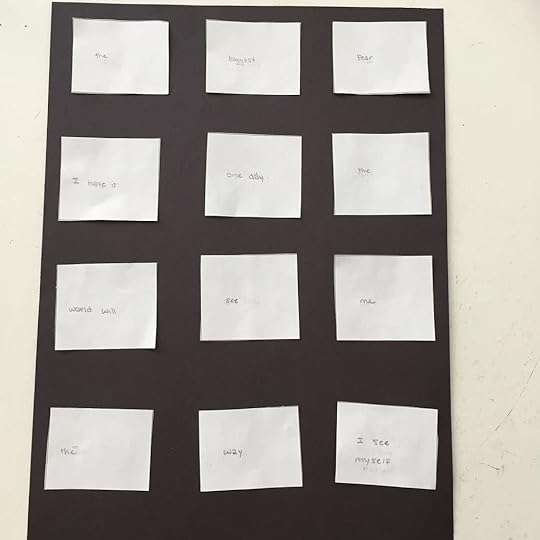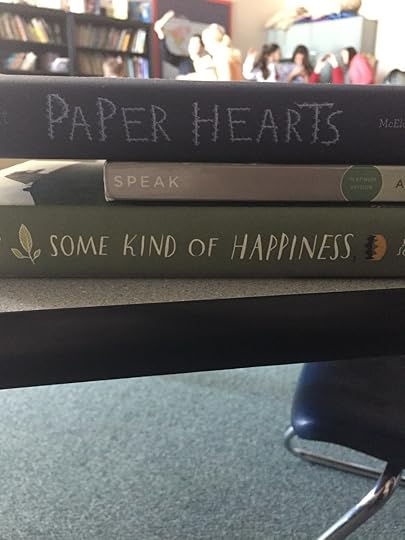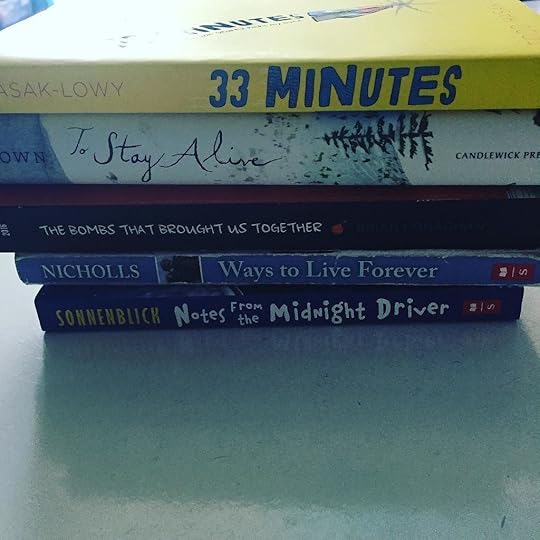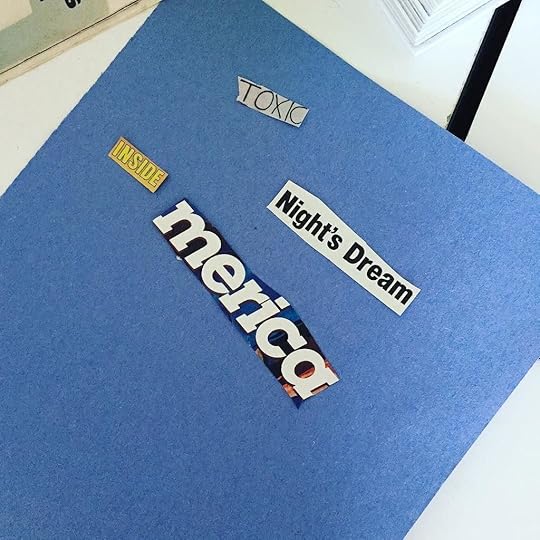An Exploration Into Found Poetry
My students don’t love poetry. I know this because when I told them we would be creating poetry, the cacophony of noise that erupted was not one of joy or happiness. It sounded more like some of them were sick.
But this is exactly why I love teaching poetry in 7th grade. It is a chance to rewrite and reclaim the whole notion of what poetry is. To help students see that they too can create things with meaning without feeling like poetry is just one more thing they are not smart enough to produce.
So instead of “regular” poetry, we create found poetry. Introduced to us by the amazing David Daniel, an actor who does a weeklong poetry workshop with us every year (the kids have no idea how much they will love it). We create poetry out of words that were not made by us. We make poetry out of our surroundings, out of noises, out of words found in books and on books. And I see the change, I see the spirit with which kids embrace this task. How they all of a sudden feel like poets.
What are the different components?
Video:
Every day we share a video of a spoken word poet, some of our favorites are – if you have others, please share them in the comments:
To This Day Project by Shane Koyzcan
What Kind of Asian Are You? by Alex Dang
Somewhere in America by Belissa Escobedo, Rhiannon McGavin, and Zariya Allen
An Ode to Whataburger by Amir Safi
Why I Hate School But Love Education by Suli Breaks
Different Concepts:
There are many ways to create found poetry, here are a few of our favorites
Black-Out Poetry
Where students black the words out on pages of books, leaving only the words of their poem behind. We use discarded library books for this.
[image error] [image error]
Found Words Poetry
Students search the classroom for words to fill out in a table on a piece of white paper. Once they have filled all of their boxes, they cut them out, put them in the order they want and then glue them down.

Book Spine Poetry
Students create poetry using the titles of books, by stacking them on top of each other and then snapping a picture of their creations. We shared them on social media using the hashtag #OMSreads



Collage Poetry (or Ransom Note poetry as the students coined it)
Using images and words from magazines, students cut out what they need and create a poem collage.


Conversation poetry
Send students to a busy area listening for sounds and snippets of conversations. Write them down and then use them as lines in your poem.
Model poetry
Who says poetry needs words? Using maker space materials create a visual poem that tells its stories using words or not.
There are many other ways of creating found poetry, if you have other ideas, share them in the comments.
While this may seem like just fun and games, it has been quite amazing to see the transformation. We have also spoken about poetic terms that the students have been exposed to before, but may have forgotten. This great word wall came from our 8th grade English teachers and help kids get reacquainted with terms they may either need or would like to be inspired by.
[image error]
So while my students didn’t love poetry in the beginning, and some might not still, many have realized that can be poets. That poetry should make them feel something. that poetry can be all around us. I have loved this exploration so much.
If you like what you read here, consider reading any of my books; the newest called Reimagining Literacy Through Global Collaboration, a how-to guide for those who would like to infuse global collaboration into their curriculum, was just released. I am currently working on a new literacy book, called Passionate Readers and it will be published in the summer of 2017 by Routledge.If you are looking for solutions and ideas for how to re-engage all of your students consider reading my very first book Passionate Learners – How to Engage and Empower Your Students. Also, if you are wondering where I will be in the coming year or would like to have me speak, please see this page.
Filed under: being a teacher, Literacy, writing





